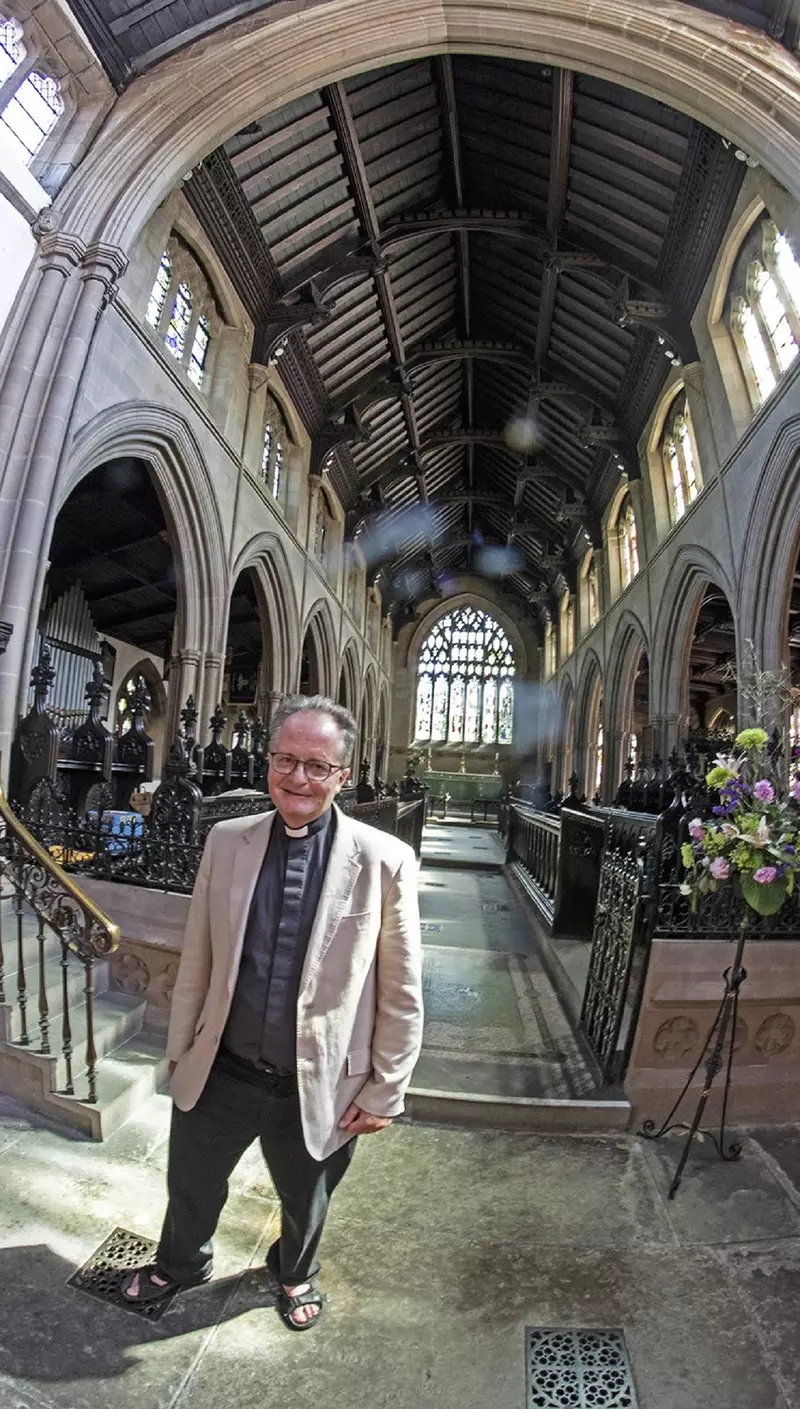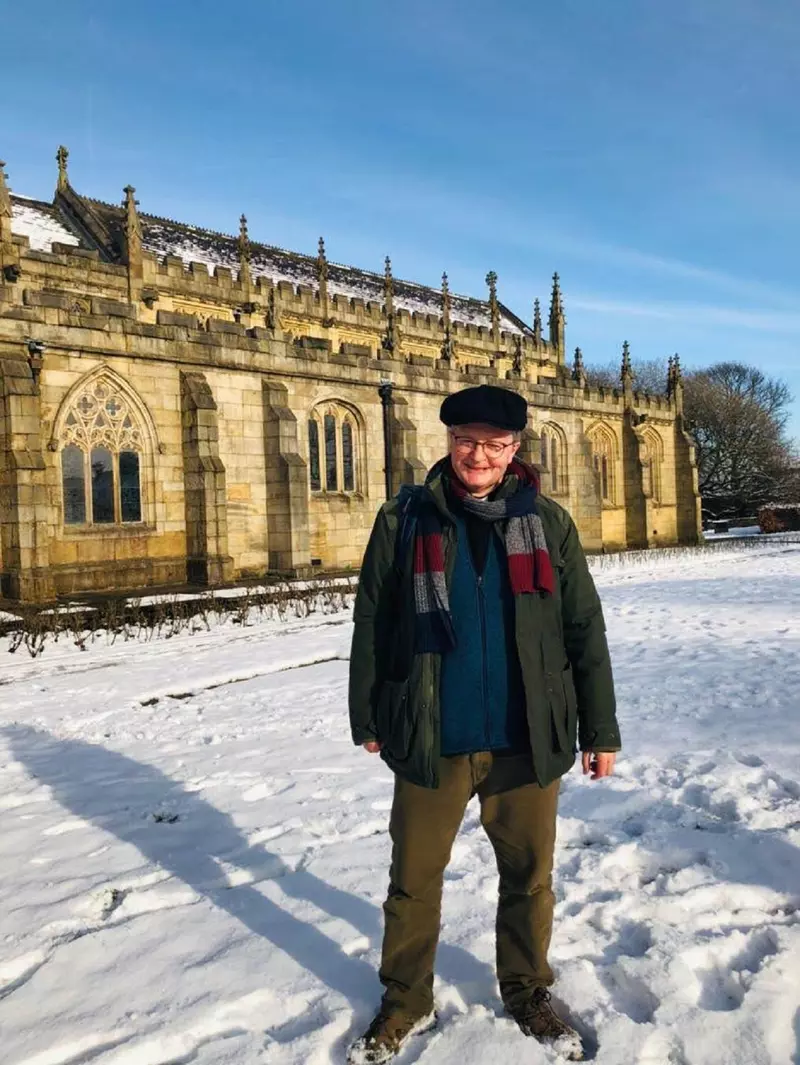Activism, faith and Parkinson's: Mark's story
Mark was diagnosed with Parkinson’s 6 years ago. Now involved in climate change activism, he shares how his diagnosis allowed him to follow his beliefs.
Mark had been ordained as an Anglican priest for 15 years, but was only 3 months into a new role at a church in Rochdale, when he was diagnosed with Parkinson’s at the age of 56.
“Parkinson’s never crossed my mind and the diagnosis came as a shock,” admits Mark. “My immediate thought though, was ‘I have to talk about this.’ Of course, no one likes to be less than perfect, but sharing this news felt important.
“After my family, the first people I told were my church council. They were very supportive and telling them took away some of the anxiety about my diagnosis that I had been feeling,” explains Mark. “In some respects, it deepened our relationship by me being willing to be honest about myself.”
I'm learning to be gentle with myself and to accept that when I’m having an off day, I won’t do so much.
Reconciliation
How does Mark reconcile his faith and his Parkinson’s diagnosis? “That’s a good question. On a bad day, I can feel pretty rubbish - and I think it’s important to be honest about that.
“I'm learning to be gentle with myself and to accept that when I’m having an off day, I won’t do so much. I might read a book or listen to a podcast, and that might be it,” says Mark.
“The Bible says love your neighbour as yourself, and I’m learning that unless you love yourself you have little to give back.
“On a good day though, being aware of my frailty moves my ego to one side and makes a space for me to get involved in caring for people and the planet. Activism also makes me feel well and get my problems into perspective.”

Stepping up
Mark has been worried about climate change for many years and had lobbied his MP on the issue in the past. “But I still felt powerless. I wanted to raise my head above the parapet so to speak,” he explains. “Being diagnosed with Parkinson’s unlocked the final part of me to act.”
In October 2019, Mark took part in the Extinction Rebellion protests in London, where he was arrested with other activists for blocking the highway.
Parkinson’s created it’s own practical challenges to this as Mark explains: “I have bladder problems, so I was careful not to drink too much and I’d visited the toilet just before I sat down in the road.
My view is that I’m not dead yet and am able to give myself to this cause.
“When I was arrested, I told the police officer I had Parkinson’s and needed to take medication. I had bought my prescription with me and all my medication was in its original packaging.
“I was kept at the police station overnight, but all the officers were very helpful and my Parkinson’s was well-managed,” Marks says.
“A nurse would give me my medication when I needed it and I could also ask for a drink or food when I wanted. Parkinson’s means I find I don’t sleep very well, so I even noticed an officer opening and looking through the hatch every hour or so to check I was OK.”
For Mark, becoming an activist is a seizing the day-type opportunity. “My view is that I’m not dead yet and am able to give myself to this cause.
“I want to be active for other, more vulnerable people in the world who are at the hard end of climate change. Parkinson’s means I’m vulnerable too.”
I’m still busy in retirement, but...I don't get the endless calls or emails, which often led to mental overload. And if it’s too much, I know I can always say no.
Retirement
Mark decided to take early retirement 5 years after receiving his Parkinson's diagnosis. “By that point, I was looking after 2 churches and beginning to feel the stress of this - and Parkinson’s doesn’t like stress. My decision making was also becoming not as good as it used to be and sometimes my anxiety would get too much.
“I knew there would be a lot I’d miss about the job, working on interfaith understanding in particular, and the privilege of conducting weddings and funerals,” says Mark. “But I also knew it was the right decision for me and in the end I was happy to step down.
“I still help by doing holiday cover for local vicars so take about 2 services a month, and I am involved with charity work and different activist groups,” explains Mark. “So I’m still busy in retirement, but not being in a permanent role means that I don't get the endless calls or emails, which often led to mental overload. And if it’s too much, I know I can always say no.”
Life is for living
Mark’s priorities now are to continue to build and protect connections within a society that he does, and will continue to, depend on as a person with Parkinson’s. And as his activism has shown, he’s also a huge advocate that life is for living.
“I use a walking stick now, which helps me move more smoothly and means that walking is less tiring. But I was made to reflect recently when someone told me that they'd heard I had a stick.
"I wasn't comfortable with being an object of pity. Parkinson’s has taught me being alive is a gift - and that’s something to be excited about.”


